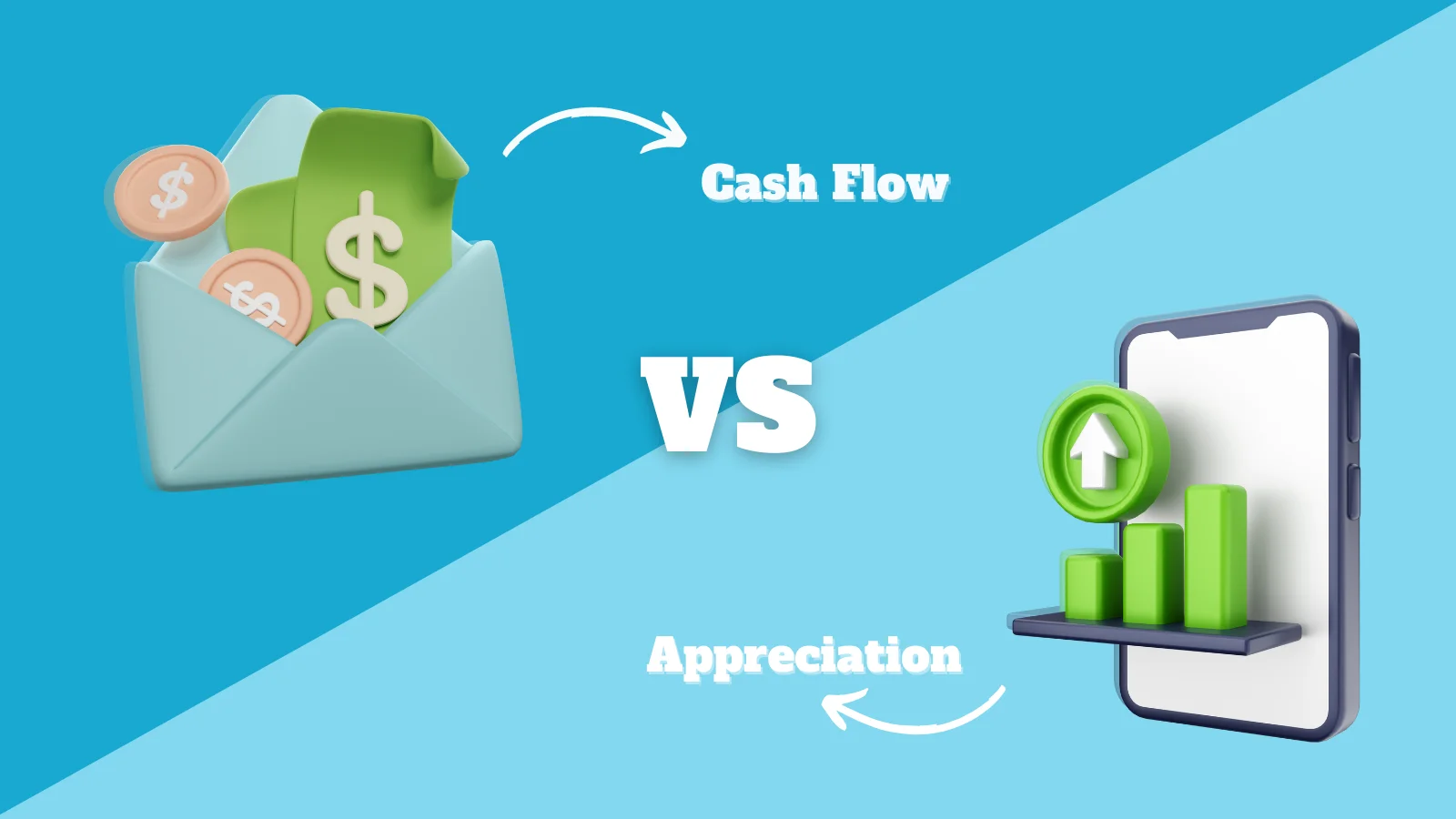The choice between investing for cash flow or appreciation depends on your financial goals, risk tolerance, real estate market, and investment strategy, among other factors. Both approaches have their advantages and disadvantages, and they often complement each other in a well-diversified investment portfolio. In this post, we’ll take an in-depth look at both strategies to better compare cash flow versus appreciation.
The cash flow strategy and real estate appreciation are both solid strategies to build wealth overtime, and both have their benefits and drawbacks. Let’s dive in.
Pros and Cons of Producing Cash Flow Strategy
Cash Flow Pros:
- Predictable Income: Cash flow provides regular and predictable rental income, making it easier to budget and plan for your financial independence.
- Hedge Against Market Volatility: Cash flow rental properties are generally less affected by current market value and fluctuations, offering stability during economic downturns.
- Debt Paydown: Rental income can help cover mortgage payments, giving real estate investors more equity over time.
- Tax Benefits: You may be able to deduct expenses related to your cash flows, reducing your taxable income.
- Diversification: Cash flowing property can provide diversification in your real estate portfolio, reducing risk.
Cash Flow Cons:
- Slower Wealth Accumulation: Cash flow real estate investors may build wealth slower compared to those investors who focus on appreciation.
- Real Estate Market Selection: Location becomes critical, and investors need to carefully choose areas with strong rental demand
Benefits and Drawbacks of the Real Estate Appreciation Approach
Advantages for Real Estate Appreciation:
> Potential for Substantial Gains: Successful appreciation-focused investments can yield significant profits when properties appreciate in value.
> Minimal Active Management: This approach requires less day-to-day involvement than managing rental properties.
> Leveraging Equity: As properties appreciate, you can leverage the increased equity through a cash-out refinance for additional investments or financial goals.
Drawbacks for Real Estate Appreciation:
- Market Risk: Appreciation depends on market conditions and home prices, which are unpredictable and can be subject to economic downturns.
- Lack of Immediate Income: Appreciation investors may not see any significant returns until they sell their properties.
> Capital Gains Tax: Selling properties for a profit can result in capital gains tax liabilities.
Which investment approach is right for you?
In summary, investing for cash flow and appreciation are both great ways to grow a real estate business and build wealth over time. Many investors find success by striking a balance between the two, using cash flow investments to provide steady rental income and pay down debt while holding appreciating assets for long-term growth. Ultimately, thorough research, market analysis, and a well-defined investment plan will help you make the best choice for your real estate portfolio.






